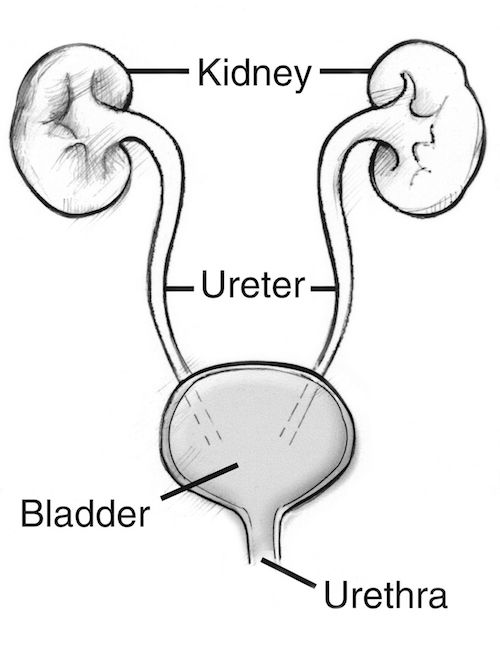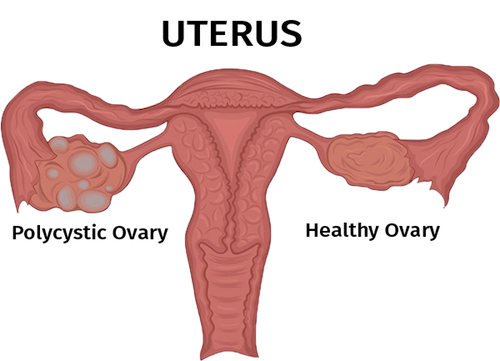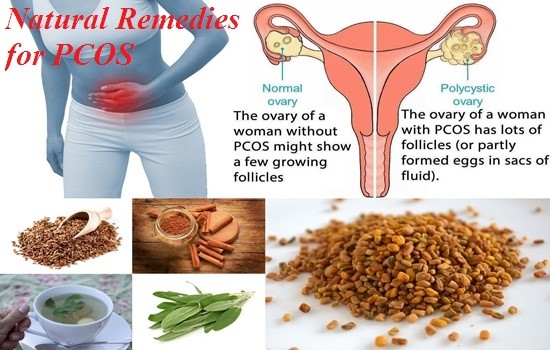Polycystic Ovary Syndrome (PCOS) or Polycystic Ovary Disease (PCOD) is a common endocrine disorder among women of reproductive age, characterized by irregular menstruation, high levels of androgens, and the presence of cysts in the ovaries. Ayurveda, a traditional system of medicine originating from India, uses a holistic approach to treat PCOS/PCOD, focusing on balancing the doshas, which are vital energies in the body. Here are some Ayurvedic approaches for managing this condition. These are adopted by many Ayurvedic doctors as treatment for PCOD or PCOS.
Table of content
Consuming Balanced Ayurvedic PCOD or PCOS Diet
Adopting Lifestyle Modifications
Consuming Balanced Ayurvedic PCOD or PCOS Diet
Managing Polycystic Ovary Syndrome (PCOS) or Polycystic Ovary Disease (PCOD) necessitates careful attention to ayurveda diet as it plays a pivotal role in mitigating symptoms and managing the condition. A diet rich in fiber, antioxidants, and essential nutrients is fundamental in regulating blood sugar levels and maintaining hormonal balance, crucial aspects of managing PCOS/PCOD.
Consume a nutritious diet:
A well-rounded and nutritious diet should emphasize the consumption of fresh fruits and vegetables, which are high in fiber and essential vitamins. These can help in controlling insulin levels and reducing inflammation. Incorporating leafy greens, berries, and low glycemic index fruits such as cherries and apples is recommended. Avoiding fruits high in natural sugars, like bananas and grapes, is also beneficial to prevent spikes in blood sugar levels. Incorporating spices like turmeric, cinnamon, and fenugreek can be beneficial.
Incorporate whole grains
Whole grains like quinoa, barley, and farro should be included as they are rich in B-vitamins and fiber, aiding in maintaining hormonal balance and improving insulin resistance. Replacing refined carbohydrates with complex carbohydrates is essential. Opting for brown rice over white and choosing whole wheat bread and pasta can make a significant difference.
Prefer healthy fats
Healthy fats are indispensable for hormone production and can assist in reducing inflammation. Avocados, olive oil, nuts, seeds, and fatty fish rich in Omega-3 fatty acids are excellent choices. Conversely, limiting the intake of saturated and trans fats found in fried foods, baked goods, and processed snacks is crucial as they can exacerbate inflammation and insulin resistance.
Include protein in diet
Protein is a vital component of a balanced diet and is especially important for those dealing with PCOS/PCOD. It helps in stabilizing blood sugar levels and enhancing satiety. Including lean proteins like poultry, fish, beans, lentils, and low-fat dairy is advantageous.
Choose your food carefully
In addition to healthy food choices, it is critical to focus on portion control to maintain a healthy weight. Overeating, even healthy foods, can lead to weight gain, escalating the symptoms of PCOS/PCOD. Regular, balanced meals and snacks can also aid in maintaining stable blood sugar levels, preventing the insulin spikes that can aggravate symptoms.
Maintain hydration levels
Maintaining hydration is crucial; however, it is advised to limit the intake of sugary beverages, caffeine, and alcohol. Opting for water, herbal teas, and other low-calorie beverages can help in maintaining optimal hydration levels without contributing to weight gain and insulin resistance.
Avoid processed foods
Furthermore, avoiding processed and packaged foods high in added sugars, salts, and unhealthy fats is crucial. These can lead to weight gain and can worsen insulin resistance, aggravating the condition. Spices such as cinnamon and turmeric can be included in the diet as they may help in managing insulin sensitivity and reducing inflammation.
Implementing these dietary changes can contribute substantially to managing the symptoms of PCOS/PCOD, helping in maintaining hormonal balance and improving overall well-being. It is also crucial to individualize dietary interventions based on personal health needs, preferences, and medical advice.
Using Ayurvedic herbs
In managing PCOS or PCOD, Ayurveda, the ancient system of Indian medicine, recommends a multitude of herbs aimed at restoring hormonal balance and promoting overall reproductive health. Many ayurvedic home remedies for female infertility include these herbs. Among these herbs,
Lodhra
Lodhra is another potent Ayurvedic herb esteemed for its effectiveness in female reproductive health. It is purported to balance excess Kapha, thereby potentially alleviating menstrual irregularities and hormonal imbalances associated with PCOS or PCOD. Additionally, Ashoka is renowned for its uterine tonic properties, assisting in maintaining the structural and functional integrity of the uterine lining, crucial for menstrual regularity and reproductive health.
Ashoka
Ashoka is renowned for its potential impact on female reproductive health. It is traditionally used to regulate menstrual cycles and alleviate menstrual pain, making it a valuable asset for those struggling with the irregular cycles and discomfort often seen in PCOS or PCOD.
Shatavari (Asparagus racemosus):
Shatavari is an essential herb in Ayurveda known for its adaptogenic properties, meaning it helps the body combat stress. This herb is particularly renowned for its potential ability to balance female hormones, making it a popular choice for managing PCOS. It’s believed to nourish the reproductive system, regulate menstrual cycles, and alleviate menstrual pain. Some studies suggest that it can also improve insulin sensitivity, addressing one of the underlying issues associated with this condition.
Ashwagandha
Ashwagandha is revered for its adaptogenic properties, meaning it can help the body resist stressors. It is believed to combat stress and anxiety, two factors that can exacerbate PCOS or PCOD symptoms, and it is also said to have a balancing effect on hormone levels, potentially mitigating the elevated androgen levels characteristic of this condition.
Shilajit
Shilajit, a herbo-mineral exudate, is credited with rejuvenating properties, believed to enhance vitality and energy. In PCOS or PCOD, it may play a role in improving metabolic functions and managing insulin resistance, a common accompaniment of this condition. Meanwhile, Aloe Vera, with its versatile therapeutic applications, is thought to aid in the restoration of hormonal equilibrium and has been reported to exhibit insulin-sensitizing effects, essential for managing this syndrome.
Cinnamon
Cinnamon is a culinary and medicinal herb with potential benefits in improving insulin sensitivity and reducing blood sugar levels, addressing two critical aspects of PCOD. Black Cardamom, another spice from the Ayurvedic repertoire, may exhibit a positive impact on insulin levels, assisting in the metabolic aspect of this disorder.
Black Cardamom
Black Cardamom is reputed for its detoxifying properties, and it is believed to assist in purifying the body and maintaining hormonal balance, contributing to overall well-being.
Jeera or cumin
Jeera, or cumin, with its myriad of health benefits, may offer relief by acting as a natural detoxifier, aiding in the elimination of toxins, and potentially improving menstrual regularity. Fenugreek, too, has been implicated in the management of insulin resistance, with studies suggesting improvements in insulin sensitivity and metabolic parameters with its intake.
Tulsi
Tulsi, or Holy Basil, has been revered for its role in maintaining hormonal harmony and mitigating stress through its adaptogenic properties. Its inclusion can be instrumental in creating a holistic approach to managing hormonal imbalances and associated symptoms, offering a sense of balance and well-being to individuals dealing with these reproductive conditions.
Fenugreek or Methi
Fenugreek or methi is traditionally used for its potential benefits in improving insulin resistance and regulating glucose metabolism, vital for managing the metabolic aspects of this condition.
Each herb, in its unique way, may contribute to the holistic well-being of individuals, and when employed mindfully and in conjunction with lifestyle modifications, may offer a natural avenue for managing the intricate and multifaceted aspects of these syndromes.
Practicing Yoga and Exercises
It’s crucial for individuals dealing with PCOS to embrace a lifestyle that includes appropriate exercises and yoga, aiding in managing symptoms and improving overall well-being. Yoga, with its comprehensive approach to well-being, is particularly beneficial, targeting not only physical but also mental health, which is crucial given the emotional and psychological stress associated with PCOD or PCOS.
Certain yoga asanas (postures) can be immensely helpful.
BaddhaKonasana or butterfly pose
The Butterfly Pose, for example, is beneficial as it stretches the inner thighs, groin, and knees, promoting relaxation in pelvic muscles and improving menstrual comfort.
Bharadvajasana
Another pose, Bharadvajasana, aids in reducing lower back pain, a common symptom, and enhances digestion and metabolism, counteracting weight gain associated with the condition.
Pranayama
Pranayama, or controlled breathing techniques, serve as valuable tools in stress management. Stress is a notable factor in aggravating the symptoms of PCOD or PCOS, and practices like Anulom Vilom (alternate nostril breathing) and Kapalbhati (skull shining breath) can help in reducing stress and promoting hormonal balance. These techniques foster a sense of relaxation and help in alleviating anxiety and depression symptoms often seen with hormonal imbalances.
Suryanamaskara or Sun Salutation
Sun Salutation is another sequence of yoga postures that is effective. This sequence works on the whole body, improving blood circulation, strengthening the abdominal muscles, and aiding in weight loss, which is paramount in managing symptoms. It also aids in restoring hormonal balance, hence regulating menstrual cycles, and improving fertility.
Moderate-intensity exercise
A regular, moderate-intensity exercise routine is also crucial. It aids in maintaining a healthy weight, improving insulin resistance, and enhancing mood, thus mitigating several symptoms of PCOD or PCOS. Activities like walking, swimming, and cycling can be integrated into daily routines, and they contribute to improved cardiovascular health and enhanced mood.
Strength training exercises
Strength training exercises are equally important, as they help in building muscle mass, improving metabolism, and aiding in weight loss. These exercises also assist in managing insulin levels, a key factor in PCOD or PCOS management, hence should be included in the weekly exercise routine.
These yoga postures and exercises, when performed regularly and combined with appropriate lifestyle changes and medical advice, can contribute significantly to managing and alleviating the distressing symptoms of PCOD or PCOS. Embracing such a holistic approach can facilitate enhanced mental and physical well-being, enabling individuals to lead a balanced and healthy life amidst the challenges posed by such conditions.
Adopting Lifestyle Modifications
For managing PCOD or PCOS, adopting a healthy and balanced lifestyle is crucial. Regular physical activity is essential; incorporating moderate-intensity exercises like walking, swimming, or cycling can help in maintaining a healthy weight and regulating hormonal levels.
A well-balanced diet, rich in fruits, vegetables, lean proteins, and whole grains, while low in processed foods, sugars, and unhealthy fats, aids in managing symptoms. Portion control and mindful eating are also pivotal in maintaining optimal body weight.
Stress management, through relaxation techniques like meditation, deep breathing, and yoga, is critical as stress can exacerbate hormonal imbalances associated with these conditions.
Adequate sleep is equally important; aiming for 7-9 hours of quality sleep can aid in hormonal balance and overall well-being. Additionally, maintaining regularity in menstrual cycles through natural and holistic approaches like Ayurveda and acupuncture can be beneficial.
It’s essential to avoid tobacco, limit alcohol intake, and manage stress effectively. Regular medical checkups and monitoring are also vital to keep symptoms in check and to avoid complications associated with PCOD or PCOS, such as diabetes and cardiovascular issues.
Regular self-education about these conditions is also crucial to manage and alleviate symptoms effectively. In essence, a multifaceted approach involving diet, exercise, stress management, and regular monitoring is indispensable for managing these conditions.
Detox Through Panchakarma:
Panchakarma therapy, rooted in Ayurveda, is a purification and detoxification treatment, beneficial for managing PCOD or PCOS. It consists of five treatments aimed at cleansing the body of toxins, balancing the doshas, and rejuvenating the body and mind. Specific to PCOD or PCOS, Panchakarma begins with a pre-purification process involving oil massages and heat therapies to liquefy toxins. Then, through the main procedures like Vamana (therapeutic vomiting), Virechana (purgation), Basti (enema), Nasya (nasal administration), and Raktamokshana (bloodletting), the toxins are expelled from the body. These procedures are tailored to individual needs, considering one’s body constitution, imbalance, and medical condition. Accompanied by dietary regulations, herbal medications, and yoga, Panchakarma aims at restoring hormonal balance, regularizing menstrual cycles, and alleviating associated symptoms like weight gain and acne. Stress management is also a crucial component, with meditation and relaxation techniques integrated into the therapy. While undergoing Panchakarma, close monitoring by qualified Ayurvedic practitioners is essential to ensure safety and effectiveness.
Using ayurvedic medications
Classical Ayurvedic medicines or preparations, like Ashokarishta, Phalasarpi, and Lodhrasava, are traditionally recommended to manage conditions like PCOD or PCOS.
Ashokarishta
Ashokarishta, made from the bark of the Ashoka tree, is revered for its potential to balance female hormones and alleviate menstrual disorders. It’s known to possess properties that may regulate menstrual cycles and alleviate pain associated with menstrual irregularities.
Phalasarpis or Phalasarpi
Phalasarpi is another crucial formulation, believed to nourish the reproductive tissues, potentially enhancing fertility and regulating menstrual cycles. This preparation is particularly significant for its purported revitalizing and strengthening properties, vital for reproductive health.
Lodhrasava
Lodhrasava is another classical concoction believed to have potent anti-inflammatory properties, possibly beneficial in reducing the inflammation of ovaries and managing symptoms associated with menstrual disorders.
These formulations aim to restore the balance in the body’s energy systems or ‘doshas,’ integral for maintaining hormonal equilibrium and reproductive health. However, the efficacy of these preparations generally hinges on individual body constitutions and the severity of the condition. It’s crucial for individuals considering these treatments to consult with qualified Ayurvedic practitioners or healthcare providers to ascertain the suitability and appropriate dosage of these preparations, ensuring safe and effective management of symptoms. This consultation is especially important given the limited scientific validation available for these classical Ayurvedic remedies
Precautions and Considerations:
– Consultation with a qualified Ayurvedic practitioner is essential before starting any treatment, as improper use of herbs or therapies can lead to adverse effects.
– Ayurvedic treatments may work best in conjunction with conventional treatments, especially in severe cases or when trying to conceive.
– Scientific studies on the effectiveness of Ayurvedic treatments for PCOS/PCOD are limited, and more research is needed to substantiate the efficacy of these treatments.
– Always discuss with a healthcare provider or a gynecologist before starting any new treatment or therapy, especially if you are already on medication for PCOS/PCOD, to avoid any potential interactions or side effects.







Pingback: Ayurveda Shukra Dhatu
Pingback: Ayurveda Health Benefits of Fennel or Saunf
Pingback: An Ayurvedic Skin Detox at Home
Pingback: Ayurveda Health Benefits of Curd / Dahi /Yogurt
Pingback: Ayurveda Health Benefits of Black Gram or Urad Dal or Mash
Pingback: Health Benefits of Ash Gourd (Benincasa Hispida)
Pingback: Benefits of fasting – An Ayurveda view- Intermittent fasting
Pingback: Raisins or Dry grapes Ayurveda Health benefits
Pingback: Benefits and Uses of Punarnava or Boerhavia diffusa
Pingback: Ayurveda Health Benefits of Cucumber
Pingback: Health Benefits of Coriander/cilantro, seeds, leaves,
Pingback: Health Benefits of Green Gram - Moong/dal/sprouts- Vigna radiata (mung)
Pingback: Benefits of ayurvedic daily routine Dinacharya